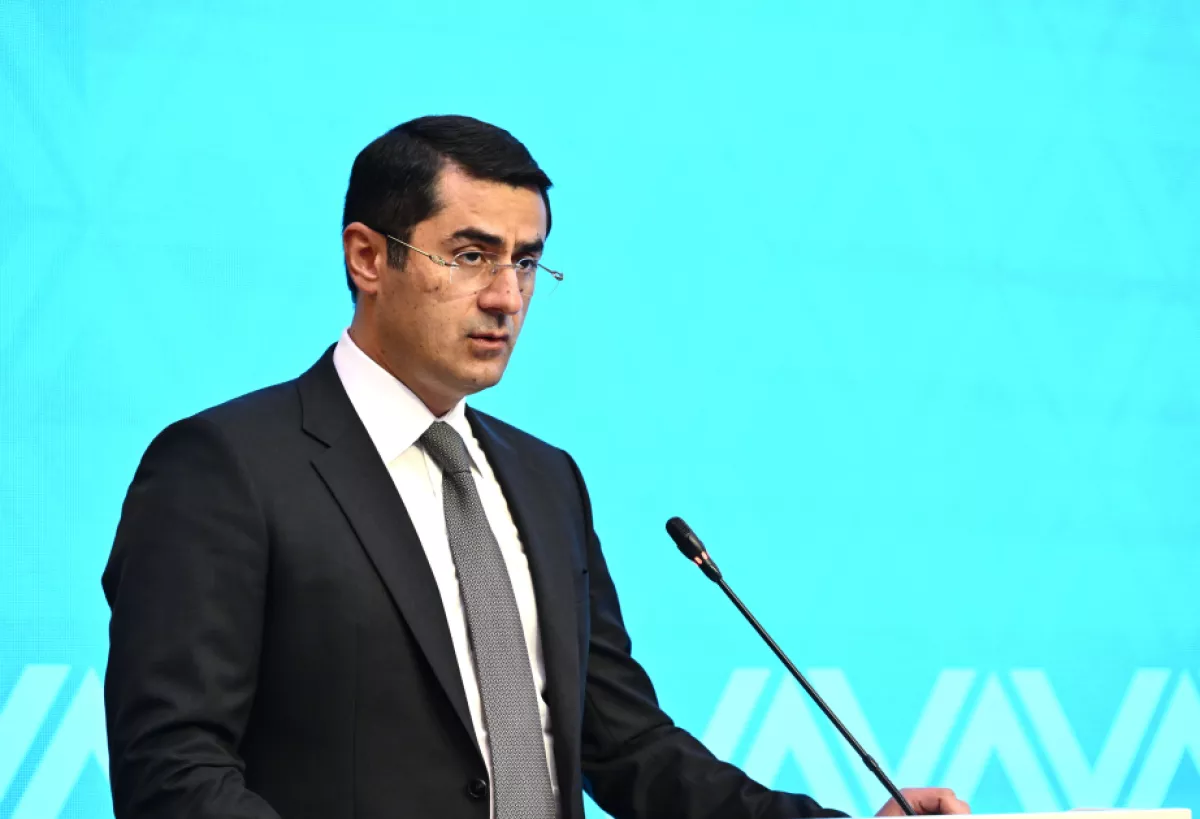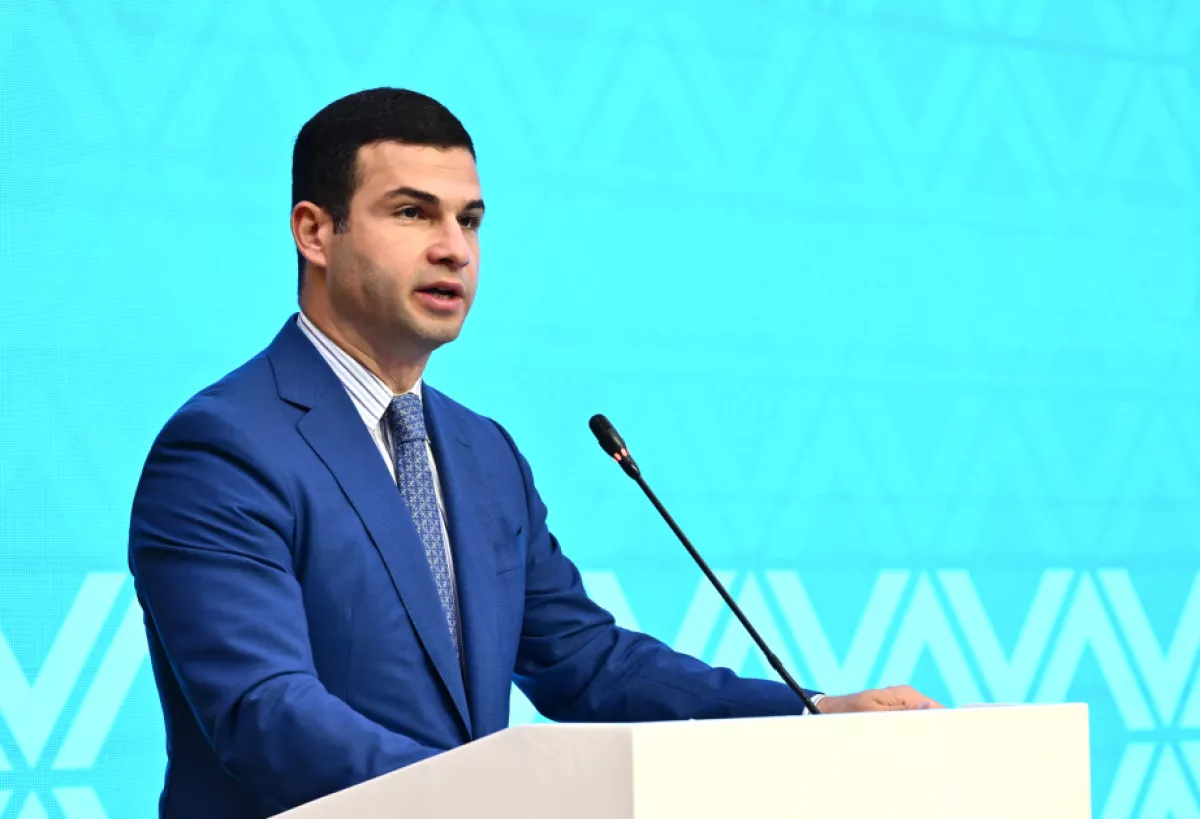A "green" light for non-oil exports Azerbaijan’s economic prospects
In recent years, Azerbaijan has implemented large-scale legislative and administrative reforms to improve the business environment. In particular, the tax burden has been reduced, administrative processes in the customs sphere have been digitalised, investment promotion certificates have been introduced, and a mechanism for subsidising exporters in the non-oil sector has been created.
The mentioned steps have had some effect, but today the government faces the key task of boosting the declining foreign trade activity, with non-oil exporters to be incentivised first. These issues were discussed at the Azerbaijan Trade Forum “Opportunities, Current Situation and Challenges for SMEs” held in Baku the previous day.
For the second year in a row, Azerbaijan has seen a decline in its foreign trade surplus. Experts attribute this negative trend to the consequences of last year's global recession and the dominant factor of imported inflation. Against this background, there was also a high level of volatility in world prices for hydrocarbon raw materials, while the decline in oil production and, accordingly, oil exports in Azerbaijan contributed to the reduction in trade turnover. However, the decline in global demand affected not only the prices of energy raw materials but also affected a number of industries in the domestic non-resource sector, reducing export volumes. Azerbaijan's foreign trade surplus in 2023 slightly exceeded $16.613 billion, which is 29.6% less than in the record year of 2022.
These negative trends were observed in the current year as well. According to the recently announced data of the Central Bank of Azerbaijan, the current account surplus in the oil and gas sector in the first half of the year reached $6.948 billion, down 15.4%, while the deficit in the non-oil sector was $4.322 billion (up 41.1%). In this regard, Azerbaijan intends to take a number of steps to improve foreign trade indicators and overcome the current negative processes in the sphere of non-oil exports. The strategic goal is to bring the total volume of non-oil exports to $5.3 billion by 2027.

“In order to stimulate Azerbaijan's non-oil exports and attract foreign investments into the country's economy, a number of projects have been implemented in important directions,” First Deputy Chairman of the State Customs Committee (SCC) Bahruz Guliyev told a participant of the Azerbaijan Trade Forum. “In particular, customs control and clearance procedures have been fully automated, and projects based on artificial intelligence (AI), which is one of the priority tasks, are also being implemented in this direction.”
According to the first deputy chairman of the SCC, in the coming days, information will be provided on new measures to stimulate non-oil exports. It should be noted that a customs forum will be held in Azerbaijan in December this year, which will be an important platform for dialogue on public-private cooperation, including encouraging exporters.
“Further simplification and digitalisation of customs operations will reduce costs and increase the efficiency of processes: innovative solutions and modern risk management methods have already made it possible to automate most customs procedures,” Guliyev stressed.
In this context, it is essential to note that the fundamental reforms implemented in the State Customs Committee (GTC) over the past two years have aimed at combating corruption and bureaucratic delays. These goals are being achieved through extensive digitization of customs procedures and the simplification of laws governing entrepreneurs' foreign trade activities. The capabilities of the GTC's electronic resources, including the e-customs platform and its mobile version, Smart Customs, have been progressively expanded. Since 2023, new rules for registering goods on the e-customs platform have become available to participants in foreign trade operations. Entrepreneurs now have access to electronic options such as the "Simplified Declaration - Electronic Trade" system, "Electronic Queue," "Fast Transition," "Calculation of Customs Duties Related to Importing Passenger Cars," and many other services.
Even earlier in 2019, the SCC introduced a simplified ‘green corridor’ clearance system, and through state-of-the-art digital solutions, risk assessments and electronic requisites, physical inspections of goods were reduced by more than 70 per cent and the capacity of customs checkpoints more than tripled.
A key focus for expanding non-oil exports has been the efforts of Azerbaijan's Ministry of Economy, specifically through the Export and Investment Promotion Agency (AZPROMO) and the Small and Medium Business Development Agency (KOBİA). These agencies have played a crucial role in establishing trade and wine houses in Arab countries, Eastern Europe, China, and Russia. They are involved in organizing trade missions, facilitating domestic exporters' participation in international exhibitions and forums, providing consulting services for market research and international certification processes, and promoting the country brand "Made in Azerbaijan."
According to KOBİA Chairman Orkhan Mammadov, Azerbaijani entrepreneurs engaged in international trade are primarily interested in obtaining information about foreign markets. They aim to optimize their costs, minimize time expenditures, and seek further simplification of administrative procedures. The agency also supports SMEs in digitalizing their business processes and embracing principles of a "green" transition.

During the Azerbaijan Trade Forum, discussions were held regarding the revival of export subsidies for non-oil sector entities, as well as logistics subsidies. It is noteworthy that AZPROMO is developing a mechanism for providing logistics subsidies to exporters of non-oil products. These subsidies will be granted for a period of five years, covering approximately 50–60% of the logistics costs incurred by exporters. In the Karabakh region, these subsidies could cover up to 100% of business expenses, with the duration for disbursing funds extended to 10 years.
Another important avenue for supporting domestic producers and exporters, as well as entrepreneurs engaged in trading operations in external markets, is the enhancement of digitalization in transit and logistics procedures. This effort aims to strengthen Azerbaijan's position as a key trade and transport hub in the region.
Guliyev highlighted during the forum that special attention is being paid to developing the country's transit potential: "Digitalizing transit procedures and participating in international systems helps reinforce Azerbaijan's status as a significant transit hub at the regional level." He emphasized that the efforts of the State Customs Committee are directed toward creating favourable conditions to stimulate non-oil exports and expand the presence of Azerbaijani products in foreign markets. In this context, projects have been implemented to simplify customs procedures, enhance the competitiveness of national products, and establish conditions for free and secure trade.
"International transport companies are showing interest in expanding their operations in Azerbaijan, and we are witnessing a constant increase in transit volumes through our country," stated Kamran Habibov, head of the Association of Transport and Forwarding Companies of Azerbaijan and Director of Hellmann Worldwide Logistics, during the forum. "However, the time has come to transform Azerbaijan into a regional trade hub. To achieve this, we need to attract global manufacturers by creating conditions for establishing regional warehouses and distribution centres in our country, from which goods can be distributed not only to the South Caucasus but also to Central Asian states."
According to Habibov, traditional global routes are being replaced by new ones, creating new opportunities for Azerbaijan, whose logistics infrastructure is developing. This progress lays the groundwork for turning the country into a regional trade hub. However, he believes that specific investment programs are necessary to attract international investments in logistics, as well as incentives for participants in the logistics market, such as transport company owners and warehouse complexes. This is particularly important for small and medium-sized enterprises (SMEs), which face challenges in implementing costly digital solutions in the trade and logistics sector.








